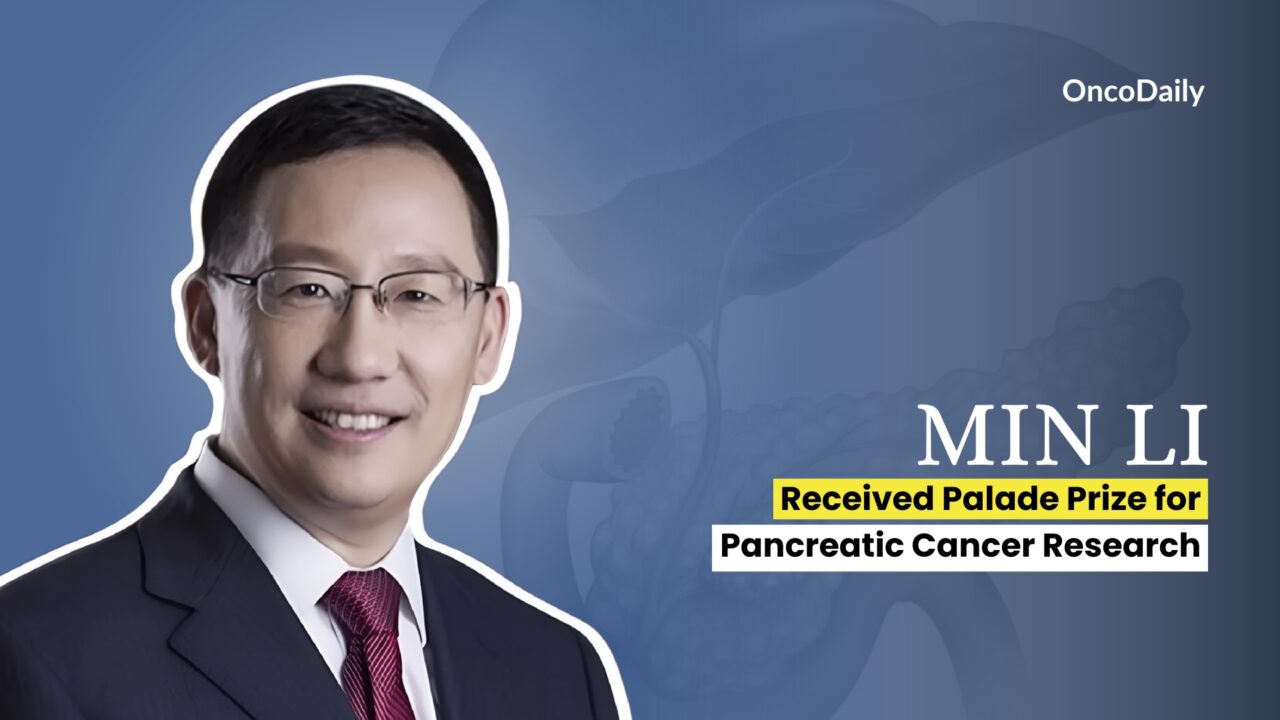University of Oklahoma Professor Min Li Honored with Palade Prize for Pancreatic Cancer Research.
Min Li a George Lynn Cross Professor of Medicine, Surgery, and Cell Biology at the University of Oklahoma College of Medicine and Associate Director for Global Oncology at OU Health Stephenson Cancer Center, has been awarded the 2024 Palade Prize by the International Association of Pancreatology.
For the past 15 years, Dr. Li has been continuously funded by the National Cancer Institute (NCI), including three active R01 grants. His groundbreaking work focuses on three primary areas:
- Combination Therapy for Pancreatic Cancer: Dr. Li’s team developed a novel surgical mouse model to investigate combination therapies for pancreatic cancer. His laboratory was the first to discover the role of the zinc transporter ZIP4 in both pancreatic cancer and cachexia, a debilitating muscle-wasting condition that often occurs with the disease.
- Metabolic Reprogramming and Muscle Wasting: Dr. Li investigates the mechanisms behind cachexia, focusing on enzymes and growth factors involved in its progression, aiming to find ways to control this rapid weight loss, which currently lacks effective treatment.
- Immunotherapy for Pancreatic Cancer: Recognizing that standard immunotherapies are often ineffective for pancreatic cancer, Dr. Li’s team has developed a combination of phototherapy and immunotherapy that has shown promising results in mouse models of metastatic pancreatic cancer.

With over 216 publications in high-impact peer-reviewed journals, Dr. Li has become a leading voice in his field, giving lectures and presentations worldwide. He has also mentored over 30 graduate students and postdoctoral fellows, many of whom have pursued successful careers in academia and industry.
Dr. Li is a past president of the American Pancreatic Association and serves on the NIH Developmental Therapeutics study section. He is the editor-in-chief of Cancer Letters and sits on the editorial boards of several esteemed journals, including Clinical Cancer Research and BMC Medicine. He is an active member of the American Association for Cancer Research and the Association for Academic Surgeons.
In addition to his research roles, Dr. Li holds several leadership positions at OU Health Sciences, including Assistant Dean for International Research Collaboration and Vice Chairman for Research in the Departments of Medicine and Surgery. He is also a co-leader of the Cancer Biology Program at OU Health Stephenson Cancer Center.
About the Palade Prize
The Palade Prize is the highest honor conferred by the International Association of Pancreatology (IAP), recognizing outstanding contributions to the field of pancreatology. Named in honor of George E. Palade, a Nobel Laureate who was awarded the Nobel Prize in Physiology or Medicine in 1974 for his groundbreaking research on the cell structure, particularly his discovery of the specialized pancreatic cell type, the Palade Prize celebrates the significant impact that scientists have made in advancing the understanding of pancreatic diseases and disorders. This prestigious award is given to individuals whose research has made transformative contributions to the field of pancreatology, particularly in the identification, diagnosis, and treatment of pancreatic diseases such as pancreatic cancer, chronic pancreatitis, and other related conditions.
The award highlights the importance of scientific innovation in the study of pancreatic diseases, which are often challenging to diagnose and treat due to the complex biology of the pancreas. By recognizing and celebrating those who push the boundaries of knowledge in this field, the Palade Prize underscores the global importance of understanding the pancreas at both a molecular and clinical level. Researchers who receive the Palade Prize have demonstrated exceptional scientific excellence and have contributed to the development of new strategies for diagnosing and treating pancreatic conditions, improving patient outcomes worldwide.
About The International Association of Pancreatology (IAP)
The International Association of Pancreatology (IAP), established in 1985, is a prominent international organization focused on advancing the field of pancreatology. Its primary goal is to foster collaboration among national and regional societies dedicated to pancreatic diseases, promoting research, education, and clinical care related to the pancreas. The IAP’s distinctive dual membership model allows individuals to be members of both the association and their respective national societies, creating a strong, interconnected global community of experts in the field. This model encourages the exchange of ideas, research findings, and best practices across borders, facilitating the global advancement of pancreatic health.

With over 3500 members from 32 countries, the IAP brings together basic scientists, clinical investigators, and healthcare professionals who are working to unravel the complexities of pancreatic biology and diseases. The association plays a key role in exploring the pathophysiology of conditions like pancreatic cancer, pancreatitis, and pancreatic cysts, with the ultimate goal of discovering new methods for diagnosing, treating, and improving outcomes for patients with these conditions. By uniting experts from diverse regions and backgrounds, IAP helps drive innovation in pancreatic research and clinical care.


